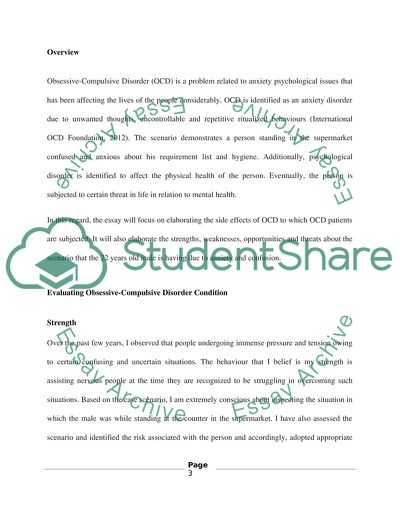Cite this document
(Mental health ( paramedic ) Essay Example | Topics and Well Written Essays - 1000 words, n.d.)
Mental health ( paramedic ) Essay Example | Topics and Well Written Essays - 1000 words. https://studentshare.org/medical-science/1839283-obsessive-compulsive-disorder-evaluation
Mental health ( paramedic ) Essay Example | Topics and Well Written Essays - 1000 words. https://studentshare.org/medical-science/1839283-obsessive-compulsive-disorder-evaluation
(Mental Health ( Paramedic ) Essay Example | Topics and Well Written Essays - 1000 Words)
Mental Health ( Paramedic ) Essay Example | Topics and Well Written Essays - 1000 Words. https://studentshare.org/medical-science/1839283-obsessive-compulsive-disorder-evaluation.
Mental Health ( Paramedic ) Essay Example | Topics and Well Written Essays - 1000 Words. https://studentshare.org/medical-science/1839283-obsessive-compulsive-disorder-evaluation.
“Mental Health ( Paramedic ) Essay Example | Topics and Well Written Essays - 1000 Words”. https://studentshare.org/medical-science/1839283-obsessive-compulsive-disorder-evaluation.


